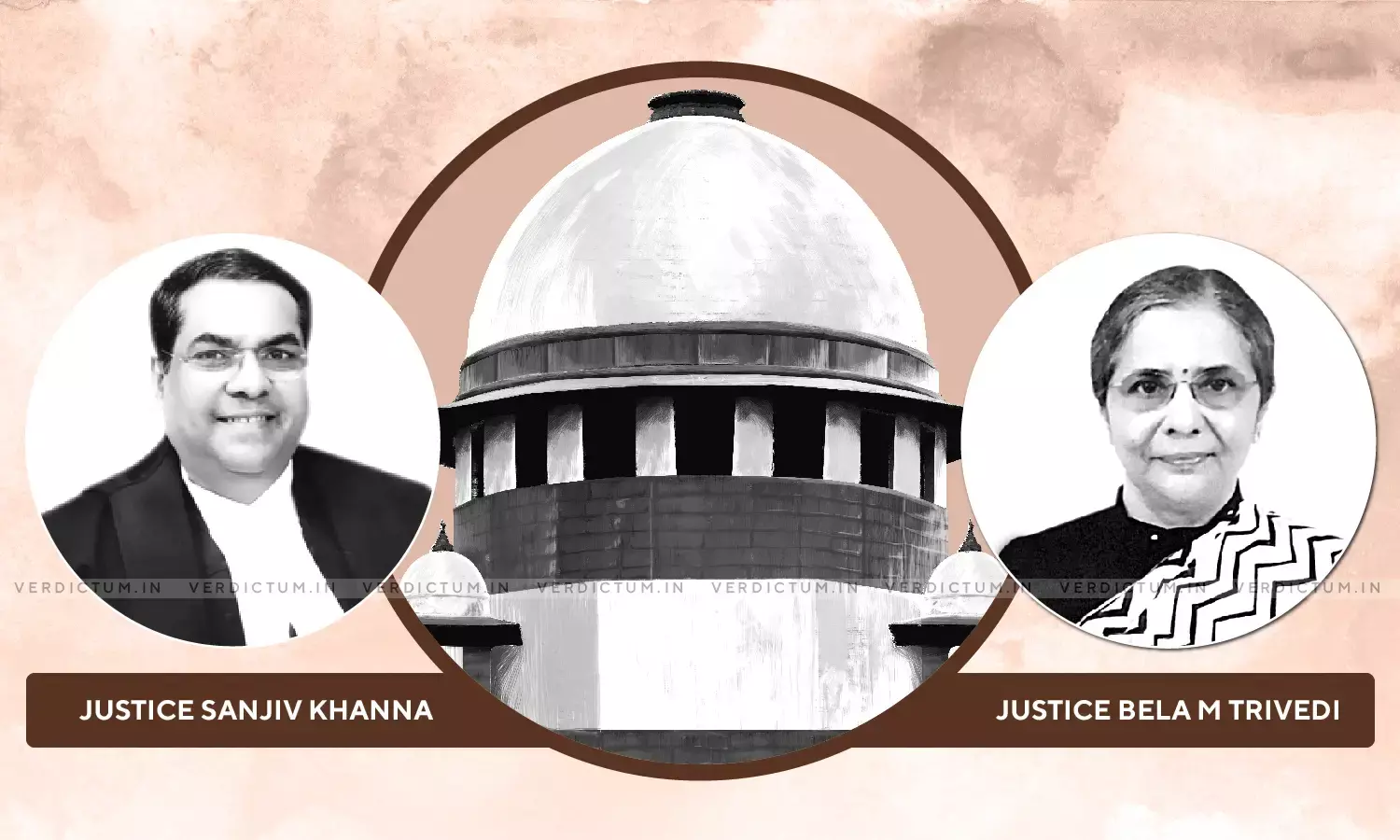Court Must Adopt Cautious Approach While Appreciating Circumstantial Evidence - SC Reiterates; Overturns Conviction

A two-judge Bench of the Supreme Court comprising of Justice Sanjiv Khanna and Justice Bela M Trivedi, while relying upon a catena of decisions, held that, in this case, the prosecution had miserably failed to prove the entire chain of circumstances which would unerringly conclude that alleged act was committed by the accused only and none else.
The Court noted that the Courts below had committed a gross error of law in convicting the accused of the alleged crime, merely on the basis of the suspicion, conjectures and surmises.
Mr. Shikhil Suri, Advocate appeared on behalf of the Appellants [through SCLSC] while Mr Krisham Mishra, Advocate appeared on behalf of the State.
In appeal, was the judgment of the Uttarakhand High Court at Nainital via which the High Court had dismissed the appeal and upheld the conviction and sentence awarded by the District and Sessions Judge.
Both accused were convicted under Section 302 read with Section 34 and 201 IPC and sentenced to undergo life imprisonment and pay a fine of Rs. 20,000 for the offence under Section 302 read with Section 34 and to undergo rigorous imprisonment for 6 years and pay a fine of Rs. 10,000 for an offence under Section 201 IPC.
The Trial Court after appreciating the evidence convicted and sentenced both accused as indicated hereinabove. This was upheld by the High Court. Hence, the appeal before the Supreme Court.
The Court noted that the entire case of prosecution hinged on circumstantial evidence as there was no eyewitness to the alleged incident. The Court noted that from the testimony of the doctor who conducted the post-mortem, there remains no shadow of a doubt that the deceased Shashi had died a homicidal death.
The Court noted that the entire investigation carried out by IOs was in a very cursory and shoddy manner. The Court noted, "There was no recovery and discovery of any incriminating articles made from the accused during the course of investigation and no attempt was made to collect any evidence much less cogent evidence to connect the accused with the alleged crime."
The Court noted that at the most it could be said that there was harassment by the accused to the deceased though no charge under Section 498A IPC was framed by the Trial Court against the accused.
The Court noted, "It is settled position of law that circumstances howsoever strong cannot take place of proof and that the guilt of the accused have to be proved by the prosecution beyond reasonable doubt." The Court relied upon the observations made in Shard Birdhichand Sarda vs. State of Maharasthra, 1984 (4) SCC 116.
The Court noted that the principles enumerated in the aforesaid judgment have been restated in a catena of decisions inter alia including State of U.P. vs. Ashok Kumar Srivastava, (1992) 2 SCC 86
The Court made the following observations:
"In the case on hand, the prosecution having failed to prove the basic facts as alleged against the accused, the burden could not be shifted on the accused by pressing into service the provisions contained in section 106 of the Evidence Act. There being no cogent evidence adduced by the prosecution to prove the entire chain of circumstances which may compel the court to arrive at the conclusion that the accused only had committed the alleged crime, the court has no hesitation in holding that the Trial Court and the High Court had committed gross error of law in convicting the accused for the alleged crime, merely on the basis of the suspicion, conjectures and surmises."
Hence, the impugned judgments were set aside. The accused was acquitted and directed to be released forthwith. The appeal was allowed.
Click here to read/download the Judgment

